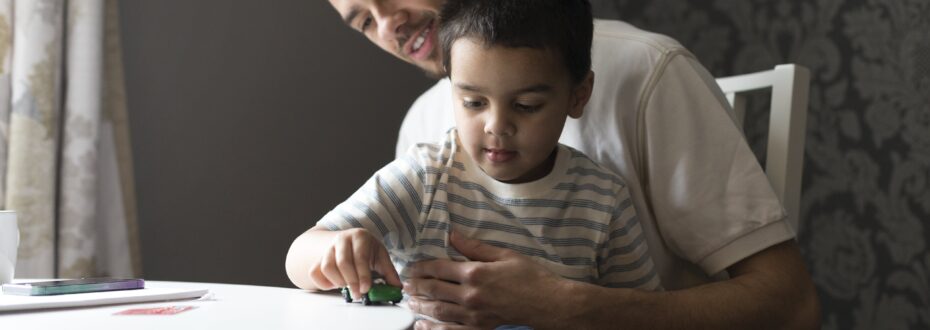Fathers have a critical yet poorly recognised role in giving their children the best chance of good mental health throughout their lives, according to a briefing paper published today by Centre for Mental Health.
Fatherhood, by Lorraine Khan, reviews evidence about the role of fathers in children’s mental health. It finds evidence that fathers have a big influence on their children’s mental health yet few get any help or support to fulfil their potential as parents.
Fatherhood finds that fathers can support their child’s mental health in the same ways as mothers: through warm, sensitive parenting, firm boundary-setting and creating a secure attachment. But fathers can also help during pregnancy to reduce or mitigate anxiety in their partners. And in infancy and childhood fathers often communicate and play in more challenging ways than mothers, giving children a safe way to reach out to the wider world.
Fatherhood finds that fathers can still form a positive co-parenting alliance with mothers even if they are separated from their families. But it finds that while the vast majority of fathers are highly motivated to be good parents, some become detached from their families and others do harm.
Fatherhood calls for more tailored help for fathers to fulfil their parenting potential. It says fathers should be supported from birth to maximise their potential as parents and father-friendly employment practices should be encouraged in workplaces. Mental health services should focus on whole families and offer better support to parents with mental health difficulties. And when parents are divorcing, post-divorce parenting plans and classes should be provided to help fathers to be effective co-parents.
There is little research on effective ways of helping fathers to fulfil their potential as parents. As a society, we are beginning to ditch outdated stereotypes about masculinity and to value the role of fathers as warm, sensitive, engaged parents. We need to go further and ensure every father gets the support he needs to be the best parent he can be.
Briefing paper author Lorraine Khan said: “The important role of fathers in influencing their children’s mental health has been given scant attention. There is little research on effective ways of helping fathers to fulfil their potential as parents. Fathers invariably want to be the best parents possible at the start of their child’s life. But many struggle to build on their initial enthusiasm.
“As a society, we are beginning to ditch outdated stereotypes about masculinity and to value the role of fathers as warm, sensitive, engaged parents. We need to go further and ensure every father gets the support he needs to be the best parent he can be.”
Read the report here


